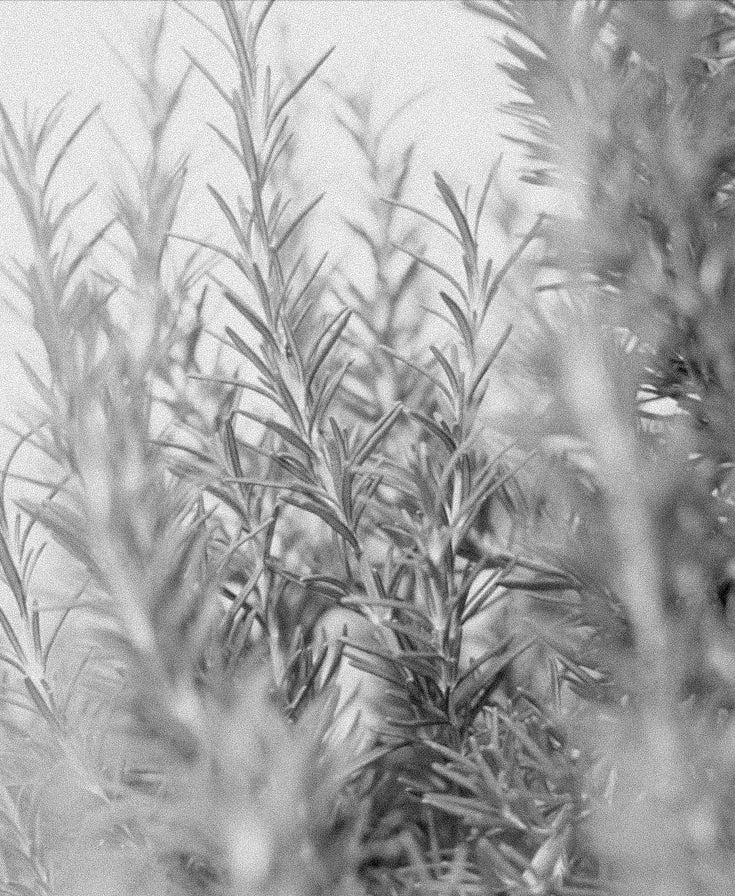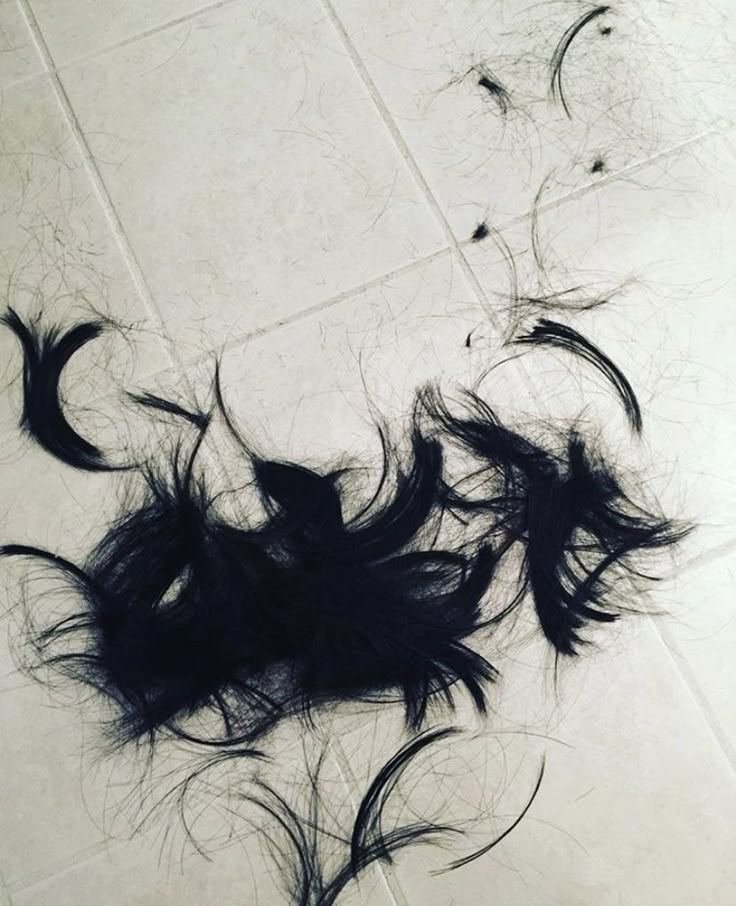Your hair follicles are one of the few organs that undergo a cycle of shrinking and regeneration throughout your life, and stem cells are part of that rhythm of regrowth.
The bad news?
During the most common type of hair loss in men and women (called androgenetic alopecia), a byproduct of testosterone called DHT essentially miniaturizes your hair follicles, disrupts the stem cell niche, and shortens your phase of hair growth, leading to hair loss over time.
The good news?
Rosemary oil is being studied as a promising natural option to support hair regrowth in that situation. The science is still progressing, but here’s everything you need to know about DHT-related hair loss and how rosemary oil might be able to help.
Your Hair Follicle and Its Stem Cells
Stem cells appear in many different places throughout your body: in your brain, blood, bones, muscles, skin, and yes, your hair follicles. These cells have the potential to develop into many different types of cells as needed. They’re able to divide themselves and “differentiate” into more specialized types of cells to replace damaged tissues, for instance.
Your hair follicle structure is a microenvironment, or niche, containing various stem cells that self-renew and contribute to your hair’s growth. These stem cells play a pivotal role in the continuous cycle of hair regeneration (the anagen, catagen, and telogen phases, but more on those later).
The hair follicle stem cell niche is essential for the maintenance of healthy hair throughout your life. But hair growth can be disrupted by a “niche pathology” when dysfunction occurs, such as when there’s too much DHT activity .
What is DHT?
Dihydrotestosterone, or DHT for short, is a sex hormone derived from testosterone. Specifically, it’s an androgen, or a hormone that stimulates the development of male sex characteristics. It’s the hormone that’s mainly responsible for the growth of facial, body, and pubic hair, for instance.
Levels of DHT are naturally higher in those assigned male at birth, but those assigned female at birth also have it. When you’re an adult, your body converts about 10% of your testosterone into DHT on a daily basis. But high levels of DHT can cause issues for you and your hair.
DHT and Hair Loss
In addition to its role in sexual development, DHT is also closely associated with hair loss, particularly in conditions like androgenetic alopecia, a.k.a. the dreaded male pattern baldness in men or female pattern baldness in women.
When DHT binds to receptors in your hair follicles, it can trigger a series of cellular events that gradually leads to hair loss. Too much DHT can disrupt the hair growth cycle, causing hair to spend less time in the active growth (anagen) phase and more time in the inactive/falling (telogen) phase. When hair follicle stem cells would normally differentiate, helping you hair grow, excess DHT can inhibit this stem cell differentiation.
Over time, an overstimulation of the androgen receptors can lead to a shrinking of your hair follicles, also known as miniaturization, making it increasingly difficult for them to produce healthy hairs.
This leads to a reduction in your hair density and coverage, causing that characteristic pattern of hair loss or baldness we see as people age.
Rosemary Oil and DHT
Rosmarinus officinalis, also known as rosemary, is the garden herb you know and love. Aside from its culinary uses, rosemary has been studied in recent years for its exciting potential to support the treatment of androgenetic alopecia.
In a 2015 study, patients with AGA used either rosemary oil or minoxidil 2% (think: the drug used in Rogaine). After six months of use, both groups experienced an equally significant increase in hair count (with less scalp itching in the rosemary oil group compared to the minoxidil group). An earlier 2013 study of mice with testosterone-related hair loss found that rosemary leaf extract resulted in significant hair regrowth as well.
Scientists theorize that rosemary might work by preventing DHT from binding to the hormone receptors that allow DHT to attack the follicles. Rosemary essential oil also improves circulation to your scalp, which could help prevent hair follicles from being starved of blood supply.
As we await more studies, this humble plant is looking like a powerful herbal hair support that could rival even one of the most popular treatments on the market. Keep in mind that rosemary oil’s potential to affect hair loss will depend on the type of hair loss in the first place. But if you’re looking for a natural way to support hair growth, rosemary oil is an option you should strongly consider.
Because we prefer to do things the natural way at Najeau, we use rosemary oil in products like our Follicle Drops and Cooling Drops. Not only does it have the potential to counter DHT and support healthy hair growth, it also smells good and has antimicrobial, anti-inflammatory, and antioxidant properties.
Takeaways
High levels of the hormone DHT can shrink hair follicles and shorten the hair growth cycle, especially in people who are genetically predisposed. It’s the mechanism at play in male and female pattern baldness, the most common type of hair loss and one that affects an estimated 80 million people in the U.S.
But a simple kitchen ingredient—rosemary oil—has been shown to be as effective as minoxidil treatments in restoring hair growth. As more science continues to be done on the benefits of rosemary oil for hair, we love this natural ingredient in our products as a safe and promising way to support healthy hair growth.
Sources:
https://my.clevelandclinic.org/health/articles/24555-dht-dihydrotestosterone
https://jbiomedsci.biomedcentral.com/articles/10.1186/s12929-020-0624-8
https://pubmed.ncbi.nlm.nih.gov/25842469/
https://www.keeps.com/learn/natural-dht-blockers
https://www.belgraviacentre.com/blog/rosemary-oil-as-a-treatment-for-hair-loss-myth-or-truth
https://www.womenshealthmag.com/beauty/a41902382/rosemary-oil-for-hair/
https://my.clevelandclinic.org/health/diseases/21753-hair-loss



